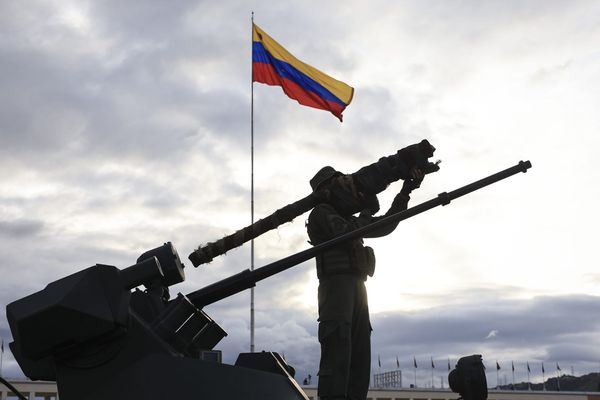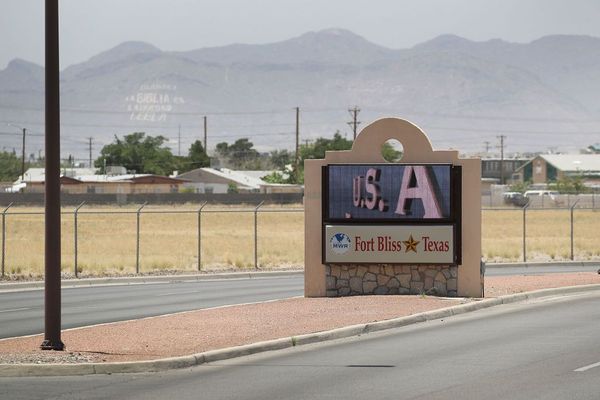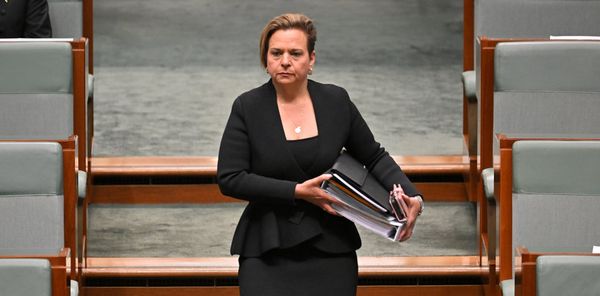
As lava sprayed out of a volcano on Iceland’s Reykjanes peninsula for the third time in as many months on Thursday, Sigurdur Enoksson felt the eruption spelled an end to his life in the town he had called home for three decades.
“This did it. I think we lost this battle,” said Sigurdur, who owns a family bakery employing 10 people in Grindavík. “After 29 years of having my bakery, I think this is the end. I think we are not coming back [to] Grindavík.” The latest eruption did not pose a direct threat to the town, but caused lava to hit water pipes in the region, affecting hot water supply for more than 20,000 people.
Sigurdur, 59, was planning to wind down towards retirement before the onset of the cataclysmic eruptions that have destroyed homes and wrenched gaping cracks in the Earth. The town’s future has since been thrown into question, with scientists fearing volcanic outbreaks could continue for years. “They’re saying eruption [could] be part of our lives for maybe years. How can you [run] a business with that?

“I own my bakery and my house and have no debts – then suddenly something happens and you’re up in the air. The question is if the government will pay us out. They’re doing their best but it’s slow. Those people whose houses were completely ruined are lucky, because they got paid,” he said. Last month, the prime minister, Katrín Jakobsdóttir, said the government was considering taking over the properties and offering compensation.
Like many other residents, Sigurdur is living in a rented flat with his family, in a town near Reykjavík. The government has offered the town’s residents financial help for accommodation costs after its evacuation on 10 November, as well as economic support to affected workers. “Lots of people have it worse than us – but we want to know where our lives are going,” Sigurdur said.
After this week’s eruption, Sigurdur feared this may be the final straw for many people from the town, particularly those with children. “I’m not sure if Grindavík will ever be safe. The town is full of cracks everywhere. It was built on lava that has opened up. That happened 800 years ago, too. We can’t control it. You don’t mess with nature.”
For Sigurdur, this could mean the end of the home he has known for half his life, with his family business at its centre. “I’ve built my small bakery with a big heart for 29 years and all that seems gone. I am so sad.”

Iceland’s president, Guðni Jóhannesson, said his thoughts were with the people of Grindavík as lava again burst through the ground on Thursday. “This too shall pass,” Guðni said.
Some residents also held such quiet, conditional optimism close as they heard the news on Thursday. Eva Lind Matthiasdottir, 39, an IT professional with five children aged between 11 and 21, and a two-year-old grandchild, is desperate to return as soon as it is declared safe. But she was clear-eyed about the importance of business, especially the fishing industry, remaining in the town for such a return to be viable.
While she can work remotely, Eva Lind’s husband is a steelworker employing six people working on local boats. This week, 130 employees of a fishing company based in the town were removed from the company’s payroll and will receive state aid.
Grindavík residents have not been given a return date, and it is unclear when, if ever, the town will be safe to inhabit. Eva Lind said the uncertainty of the situation meant many in her community were going back and forth in their minds about whether they would regain their old lives.

She said that while she would feel confident returning if the authorities ruled it safe, she understood that others may not feel the same. “People will always ask: when will this happen again? People will be afraid of it happening again.
“As soon as the town is declared safe, we want to help rebuild our community. We want teachers and kindergartens so we can have families come back.”
The family of eight are renting a home in Reykjavík, after spending two months in a two-bedroom flat owned by a relative. “[I believe] those kids can do anything because of how they handled the situation. They are just heroes.”
For Eva Lind, who moved to Grindavík eight years ago, there is no place like it. “This community is just magical. That saying: ‘It takes a village to raise a child,’ – Grindavík is that village. If there’s bad weather and I can’t pick up the kids, I don’t have to worry, some other parent will say: ‘I can pick them up for you.’ Everyone is always ready to help.
“Some of us want to go back straight away, others can’t imagine ever going back; they’ve cleared their houses. We just have to support each other. Nobody can tell you [what to do] after you lived through the evacuation and saw lava flowing into the town. Your feelings are as valid as mine.”

Páll Erlingsson, 58, has taught in Grindavík’s school for 25 years and was hoping to finish his career there. But after being evacuated, he has been teaching in a school in the capital that has given his oldest year – the 16-year-olds in year 10 – three rooms in which to complete their education together. Páll, who lived with his 27-year-old son in Grindavík, is living out of a suitcase with his girlfriend in Reykjavík.
“If we give up on the school, then it’ll be even more difficult to come back – we’d have to build up from scratch,” he said. “The kids are really positive, they’ve still got that smile.” However, he acknowledged the psychological impact the natural disaster had had on some, adding that he had been offered professional support through his employer. “It’s like having a form of PTSD.
“I try not to think too much of the future – if I think too much, it’ll bring me down. In another day, the sun will come up. My dream is to go back. But think it’ll be one or two years before we can.
“I can’t even think of it if Grindavík becomes a ghost town – that will break my heart.”







